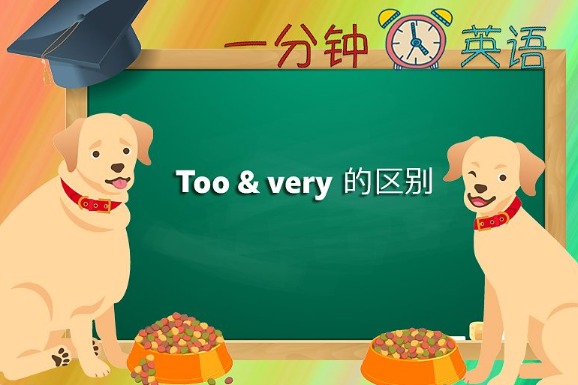
“Too” 和 “very” 是英语中使用频率极高的程度副词。它们的意思和所表达的感情色彩是有区别的。
too 和 very都有"很"的意思.但是too 是"过犹不及”的涵义,一般是“过分“的意思,而 very是正面的“很,非常”的意思.
文字稿
Phil
Hi, I’m Phil from BBC Learning English. Today, I’m going to tell you how to use too and very.
They are both intensifiers, but they don’t mean the same thing.
We use very to make an adjective or an adverb stronger.
So we can say: The building is very old. That could be a good thing - it's beautiful. Or it could be a bad thing - it's falling down. Or it might not matter.
If we use too with two Os, then it means 'it's a problem'.
Could say: It's too easy. It means ‘it’s a waste of time. It’s a problem!'
It’s not too difficult – in fact, it’s very easy.
Just remember that if we use too, it’s a problem.
用法总结
Too and very
Both too and very are intensifiers.
两个词都是程度副词。
1. Very = 很
When we use very, it's not clear whether what we are describing is a good or a bad thing.
当我们用 “very” 时,并没有说明所描述的事物是好是坏。
The building is very old.
This could be a good thing: 'the building is old and beautiful'. It could also be a bad thing: 'the building is old and falling down'.
这可能是好事:“这幢楼古老而美丽”。也可能是坏事:“这幢楼很老,就要塌了”。
2. Too = 过于、太
When we use too, it means there's a problem.
当我们用 “too” 时,意味着所描述的事情有问题。
The building is too old.
This is a bad thing. The building is too old. It might fall down and could be dangerous.
这暗示楼很 “古老” 是件坏事。这幢楼太旧了。它可能会坍塌,很危险。







